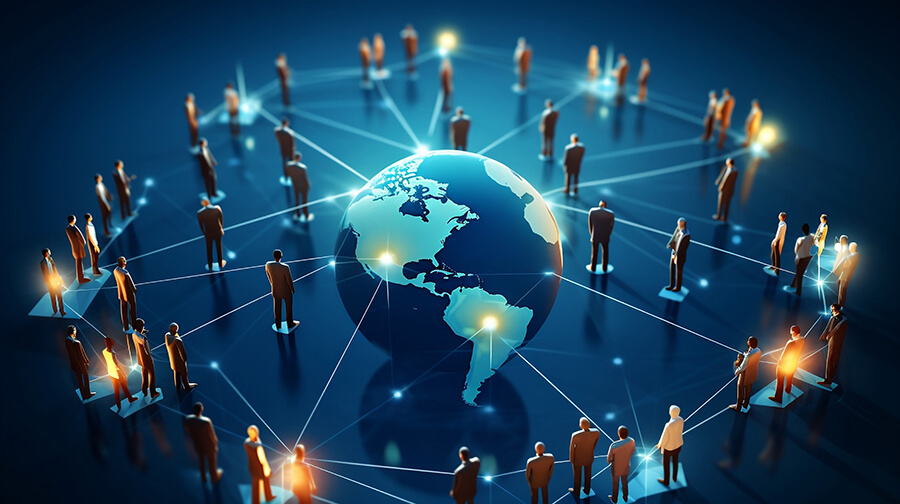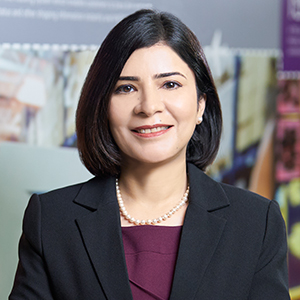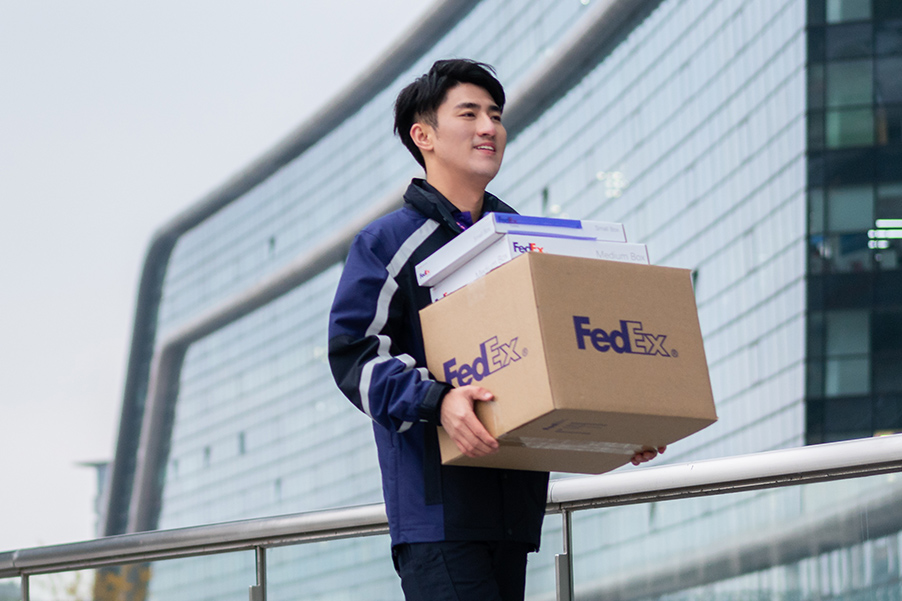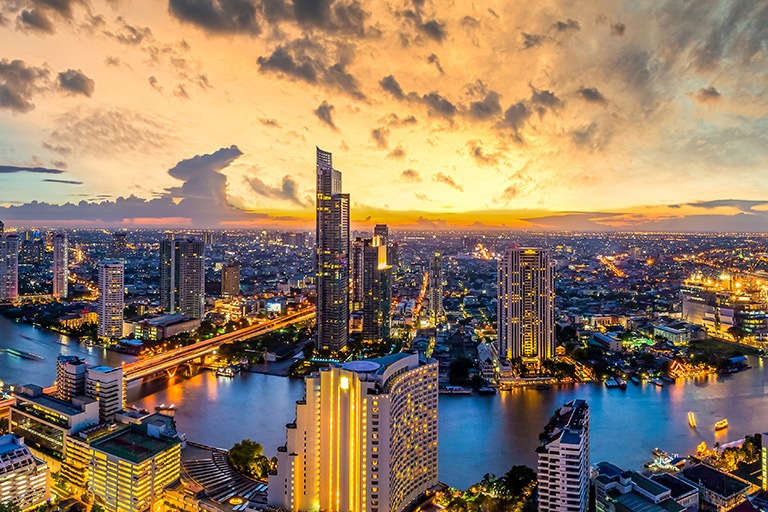How To Measure Impact For An Inclusive, Sustainable World
Economic, societal, and environmental impact: we call it the “FedEx Effect.” Kawal Preet explores how businesses of all sizes can help create a more sustainable, purpose-driven future.
When thinking about the size and scale of FedEx today, I like to remember that we were once just a startup! In April 1973, the first FedEx planes left Memphis and delivered 186 packages across the United States overnight. Fast-forward 50 years, and that startup now delivers approximately 14.5 million packages a day worldwide.
Across our global operations, we positively impact individuals and communities alike, and contribute more than $80 billion in direct impact to the global economy. To get to where we are today, we have continued leaning into our startup mindset — helping us stay agile in a fast-changing world.
And evolution and reinvention have been a constant. Since launching operations, we’ve transformed across three distinct lifecycles: domestic growth (1970s and 1980s); international growth (1980s, 1990s – and still ongoing today); and e-commerce and supply chain growth (2000s onwards). Each of these phases represent an expansion of the company’s services and geographic reach.
What does it take to create impact in today’s world? It doesn’t matter if you’re a small business or a large corporation. The big picture is the same: understanding how to support communities and stakeholders to shape a better future.
It’s about delivering value everywhere you can, which in turn brings value to your own organization — from improving customer perception to driving talent attraction and retention.
In our 50 years at FedEx, we’ve had plenty of opportunity to reflect on our own impact and the unique difference we can make to global communities. Right now, we employ more than 500,000 people and deliver millions of packages a day that help keep businesses afloat. But we aim to do much more than connect global gross domestic product (GDP). We are also connecting people, ideas, and passions.
Across our global operations, we positively impact individuals and communities alike, and contribute more than $80 billion in direct impact to the global economy. To get to where we are today, we have continued leaning into our startup mindset — helping us stay agile in a fast-changing world.
And evolution and reinvention have been a constant. Since launching operations, we’ve transformed across three distinct lifecycles: domestic growth (1970s and 1980s); international growth (1980s, 1990s – and still ongoing today); and e-commerce and supply chain growth (2000s onwards). Each of these phases represent an expansion of the company’s services and geographic reach.
Why we measure impact
What does it take to create impact in today’s world? It doesn’t matter if you’re a small business or a large corporation. The big picture is the same: understanding how to support communities and stakeholders to shape a better future.
It’s about delivering value everywhere you can, which in turn brings value to your own organization — from improving customer perception to driving talent attraction and retention.
In our 50 years at FedEx, we’ve had plenty of opportunity to reflect on our own impact and the unique difference we can make to global communities. Right now, we employ more than 500,000 people and deliver millions of packages a day that help keep businesses afloat. But we aim to do much more than connect global gross domestic product (GDP). We are also connecting people, ideas, and passions.

Our annual impact study: the FedEx Effect
One of the most interesting ways we unpack this is through our annual Global Economic Impact Report. This study underscores our significant contributions to the economy, as well as our commitment to driving innovation and making a difference in the communities where we operate. We call this the ‘FedEx Effect.’
RELATED: Your guide to eco-friendly packing strategies
The direct impact of FedEx
FedEx is a major contributor to worldwide economic output, in part as a result of our extensive network and the wide range of services we provide. Our transportation, e-commerce, and business services connect a vast majority of the world’s GDP.
Despite a challenging operating environment in fiscal year 2023, we continued making substantial contributions to the worldwide economy. In the Asia Pacific, Middle East, and Africa (AMEA) economy, FedEx Express contributed 0.02% of total net output, a growth of 6% year-on-year to $44 trillion.
Indirect impact on global economies
Beyond our direct impact, we also indirectly contribute to economic growth through our investment in facilities, employee wages, and purchases with suppliers across the globe — an estimated $35.3 billion to global net economic output in FY 2023 ($2.7 billion in AMEA).
In AMEA and beyond, we rely on a network of roughly 100,000 suppliers across our global footprint. Purchases of goods and services with FedEx suppliers stimulate additional spending, as our vendors in turn make purchases from thousands of other companies down the supply chain. It’s what we call the FedEx Effect in action!

Advice to small- and medium-sized businesses on creating sustainable, inclusive impact
It’s not just economic impact that matters. Our report also details environmental and community-based impact in every corner of the world. The FedEx Effect improves the prosperity and health of the communities we serve through annual charitable giving, in-kind shipping, and team members’ volunteer efforts.
From our youth-oriented JAITC program to our community outreach projects for minority-owned businesses, we at FedEx work with local partners to identify and support those who need greater equity and more access to opportunity.
RELATED: Measure your carbon footprint with this tool
Similar to FedEx, small- and medium-sized enterprises (SAMs) can help extend economic, societal, and environmental impact by partnering with non-profit organizations and identifying philanthropic initiatives that align with their values.
Not only does this enable businesses to take an active role in positively impacting communities, but it also can help build with business goals like strengthening brand reputation and increasing customer loyalty.
A few examples of community-based impact include giving platforms to young adults, rural and remote communities, lower socio-economic groups, those from different cultures and backgrounds, and more. Some of the ways leaders can help are through education, mentorship, access schemes, training, and outreach.
With these priorities as guiding principles, businesses around the world can create greater contributions to economies, people, and the planet — delivering lasting and important impact for decades to come.
For more information on the FedEx Effect in your region, head here.
***




















 The Latest
The Latest